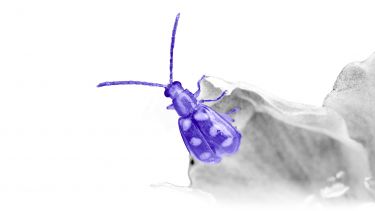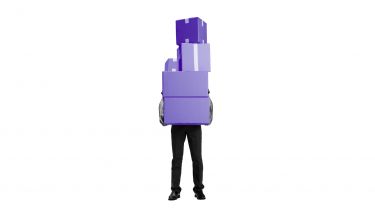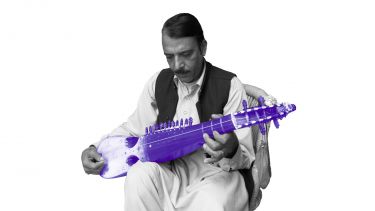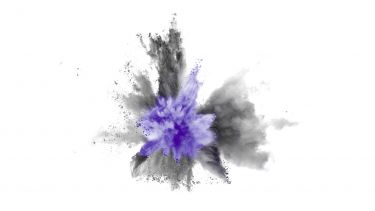Leaves on the line
Banner hidden.
Leaf-busting tech.
Cleaning the lines and reducing delays.
This is the future.
And it will be Sheffield made.
End of the line for rail delays caused by autumn leaf fall
Train delays caused by leaves on the line are set to be shunted into the past - terminating disruption for passengers caused by autumn leaf fall - thanks to a new rail cleaning system developed by researchers from the University of Sheffield.
In a new project, funded by Network Rail, the researchers are producing a plan to install their pioneering leaf-busting technology underneath Northern’s passenger trains in the North of England.
The cleaning system, developed by researchers from the University’s Department of Mechanical Engineering, works by firing dry ice pellets in a stream of air at supersonic speed at the railhead - freezing any leaves on the line. The frozen leaves are then blasted away as the dry ice pellets turn back into a gas.
Expected to be installed and ready for testing on the live rail network in 2023, it will enable passenger services to clean the track when needed - particularly in autumn and winter months when falling leaves form slippery layers on the line making it more difficult for trains to stop and start, causing delays and timetable changes.
Trialling the technology
Last year, the University of Sheffield worked with Northern to test the technology onboard an empty passenger train on the live rail network.
The trials, which ran throughout autumn and winter 2021/2022 at speeds of up to 60mph, revealed the dry ice system is much more effective at removing leaves from the line, cleaning the track and reducing stopping distances than the methods currently used by rail industry.
Following the successful trials, the Sheffield researchers are now modifying their system to fit underneath the carriage of passenger trains and giving a second lease of life to retired rolling stock as demonstrator units.
The researchers have bought two retired Pacer trains, based at Wensleydale Railway, to test the new design and develop a plan for the system to be fitted throughout Northern’s fleet.
Cryo Technologies Limited
The continued success of the technology’s development in recent years has led to the creation of a new company - Cryo Technologies Limited.
Through an agreement with the University of Sheffield, Cryo Technologies is transitioning the research into a commercial opportunity. Already available through Cryo Technologies is the “Cryogrip” modular road-to-rail system which has been used successfully for a whole Autumn season on the West Highland line in Scotland.
See www.cryogrip.co.uk for more details.
Future impact
Professor Roger Lewis, Professor of Mechanical Engineering at the University of Sheffield and lead researcher on the project, said: “The dry ice cleaning system we’ve developed at the University of Sheffield has the potential to revolutionise how we clean the UK’s railways. Our trials over the last year have shown how it is a much better system for removing leaves from the line with train drivers reporting that it restores rails to almost new-like condition.
“By installing the dry ice system on passenger trains it enables drivers to clean the track whenever they need it to help avoid dangerous sliding events. It also means we can clean more of the UK’s rail network - reaching the branch lines served by local stopping services that so many people rely on to get to work and travel throughout the autumn and winter months. Wherever passenger trains go, the cleaning system could go - it could be used to clean every railway line in the country, if adopted widely.”
Rob Cummings, Seasonal Improvement Manager at Northern, said:“This is the next step in finding a solution to tricky autumn conditions. One of the biggest risks to our performance during October and November is leaves on the line, but by helping to develop new innovative technology we aim to deliver the very best service for our passengers.”
To stay up to date with the latest world-changing advances from the University of Sheffield, sign up to receive our briefing.






